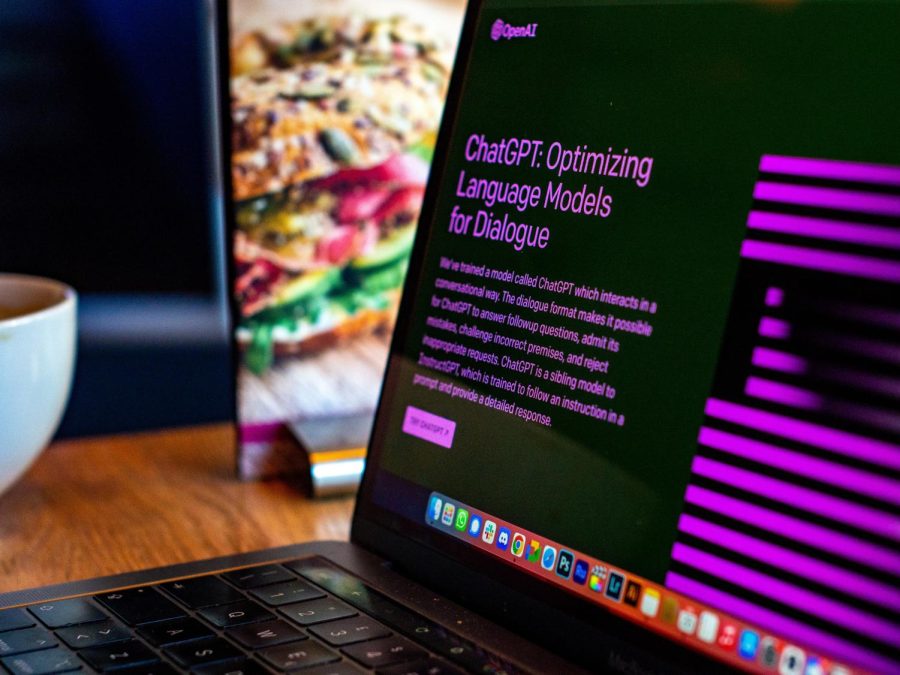ChatGPT’s Popularity Brings Advantages and Challenges Into Classrooms and the Workforce
April 13, 2023
Since its launch in Nov. last year, ChatGPT has created conversations about how the future will look with artificial intelligence. Universities are important places where these discussions take place because people are experimenting with the new artificial intelligence chatbot, and FGCU is no exception.
“First, I used it just to understand the concept with some general, random questions,” Barjon Kadi, a junior majoring in accounting and minoring in entrepreneurship, said. “Then I have been using it as a tool to help myself when reviewing the material while studying for an exam by making it answer some practice problems to see the logic behind them.”
Kadi said that he has been using ChatGPT about twice a week since he first heard about it from his father in early Jan. Since then, he’s found a few aspects of the software that he likes more than others.
“You can ask the question how you want to and even make some grammar mistakes in it for example, but it still understands the concept,” Kadi said. “It provides you, not the answer based only on facts like Google, which gives you thousands of search results, but it actually comprises all those results into one and gives you an answer just like a human.”
Students are not the only ones at FGCU playing around with the AI, professors are as well. One professor that tried it out is the chair of the accounting department, Tanya Benford.
“Here is the thing with ChatGPT; it’s kind of like Wikipedia, in other words, anyone can go in and can change the information,” Benford said. “I think it will get more tied to external data, so it isn’t solely dependent on what’s being put in,” she said.
Benford believes that AI will be integrated into classrooms in the future.
“I can see how it can be integrated into the classroom; it’s not much different from Google, actually, when you come right down to it,” she said.
Kadi thinks that professors will have to adapt to this new technology, because it’s here to stay. He recommends that instead of testing for memorization, professors should test the student’s understanding of the knowledge.
“I feel that when you are at work, for example, you have the information at the palm of your hand, and you would take advantage of it,” Kadi said.
According to Kadi, students can use the AI for brainstorming, but he does predict that there will be some disadvantages.
“The only thing would be that once you read the draft, you can’t really have your original thought,” he said. “So, whether you like it or not, you are still going to use a lot of the concepts and structure [of] the essay, the way that ChatGPT has provided.”
FGCU’s Office of Student Conduct has not responded to a request for comment about AI and its relationship with FGCU Academic Integrity Policy.
Since then, students received a Canvas banner about a Turnitin update. There is now an AI writing indicator available on the similarity report that only professors can access.
There are concerns among students about having to compete against AI in the future. When ChatGPT is asked what professions it might make obsolete in the future, it answers with a tentative list of fields where AI can automate certain tasks that are currently completed by humans. The list includes data entry and processing, customer service, transportation and logistics, manufacturing, accounting and finance.
“AI has been used in the accounting profession for a while, and it will continue to be used,” Kadi said. “I don’t see that as something that goes against each other, but something that goes concurrently.”
Kadi is currently a tax intern at Hill, Bart, and King CPAs & Consultants. In his internship, he sees that a lot of the work is already automated.
“When you have the human-to-human interaction, they will be able to pick up all nuances that AI would not be able to pick up on,” Benford said. “It is sort of like the difference between in class and synchronous online.”
However, Benford reiterates that the capabilities of AI are limited.
“I can tell you that if I was for example, looking for a financial advisor, I would want both, because I would want my financial advisor to look at what the AI had generated and see what was actually applicable to me,” Benford said. “I wouldn’t feel comfortable just relying on AI as opposed to a human.”
ChatGPT agrees with Benford that AI is limited. According to the chatbot, it can never replace human judgment or build relationships with customers. However, it said it is likely that AI will transform the profession by providing new tools to enhance the work within the accounting and finance professions.
Benford’s advice to students worried about competing against AI is that they should be able to leverage.
“So they need to understand AI; they need to understand what AI can do to make their jobs easier, and then they need to understand how they add value,” she said.
“I think in three years’ time, AI will be as popular as Google,” Kadi said. “I think AI is going to be an important part of the future, so whether you like AI or not, you would have to get used to it.”

































